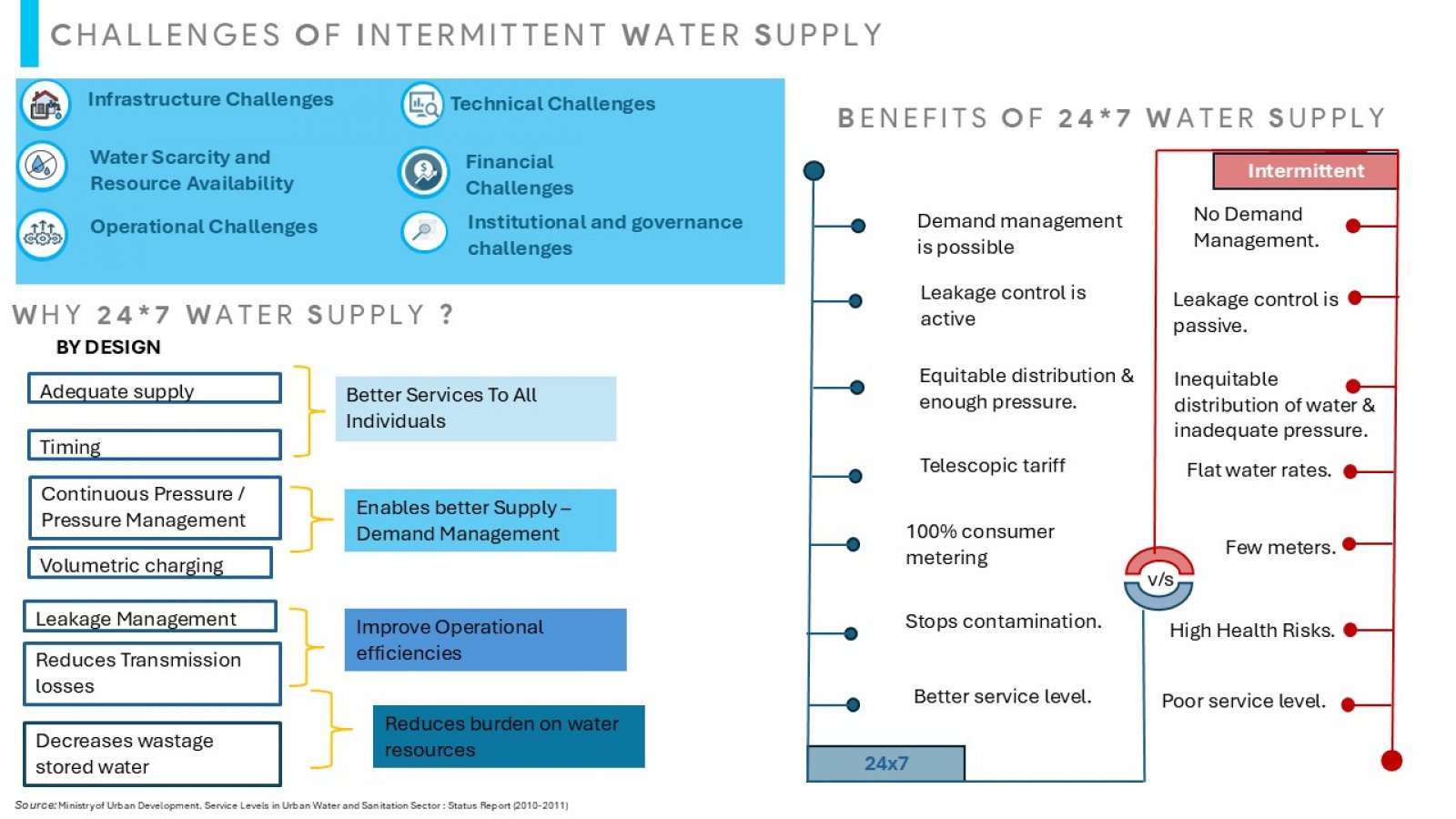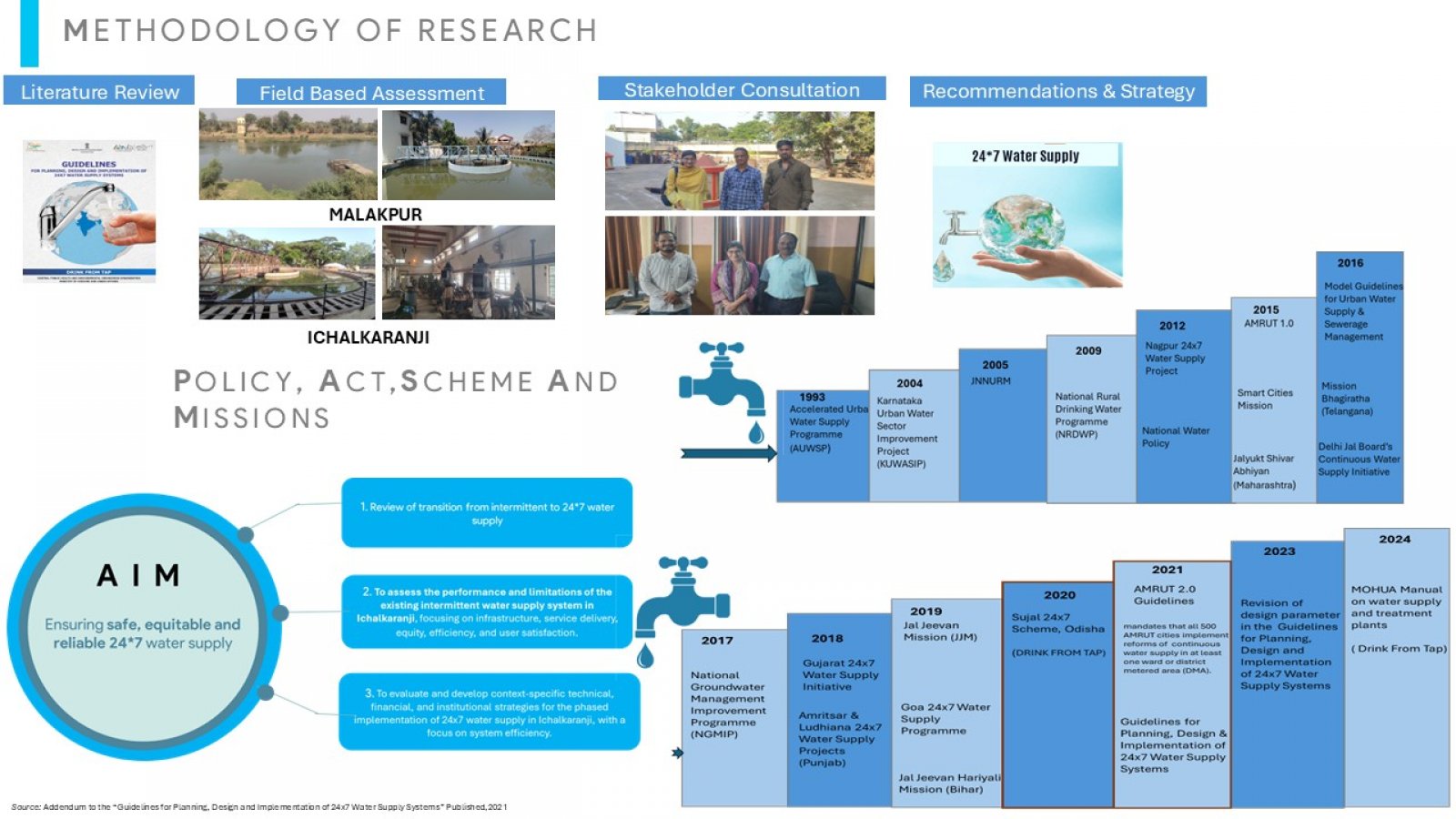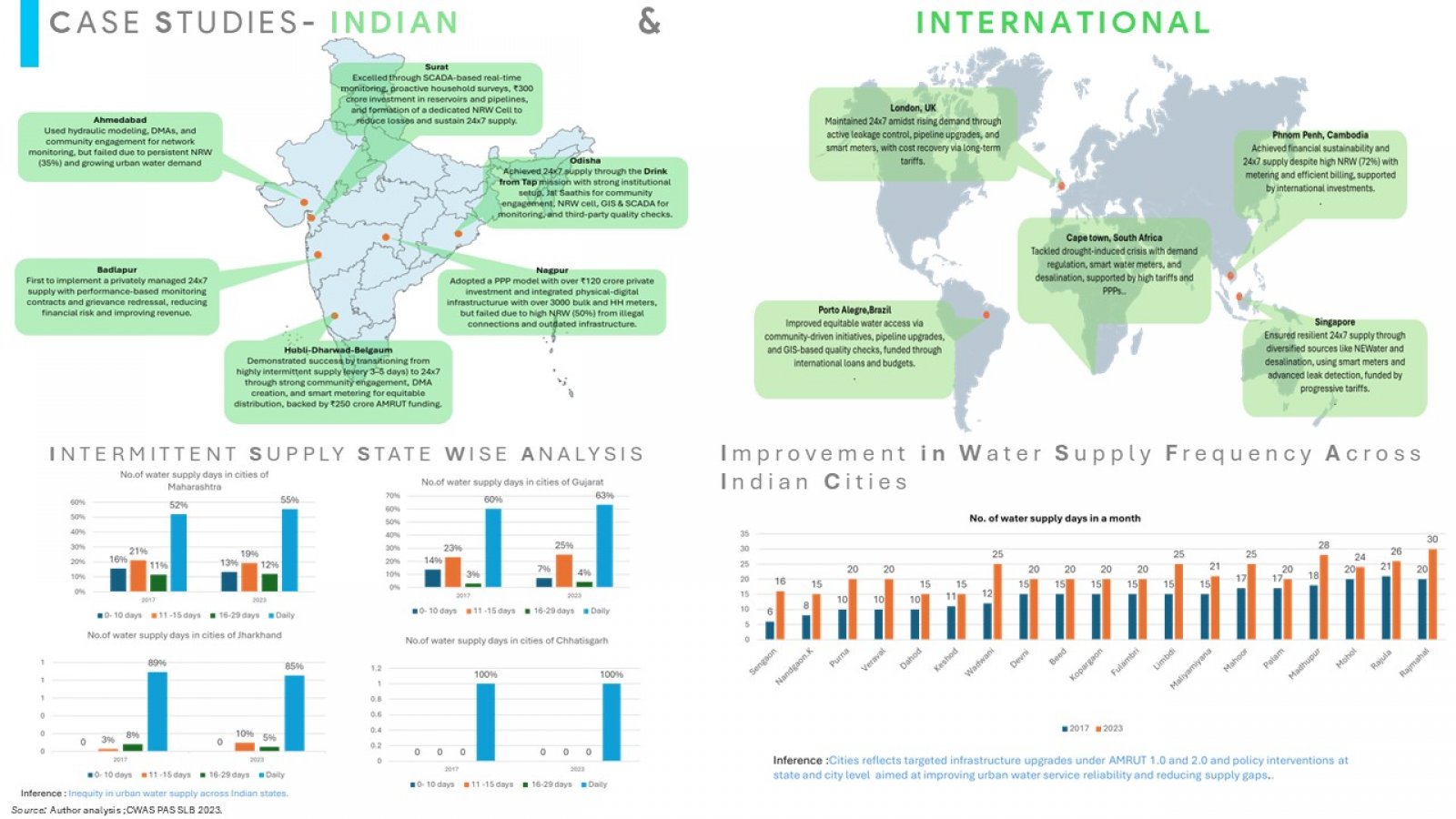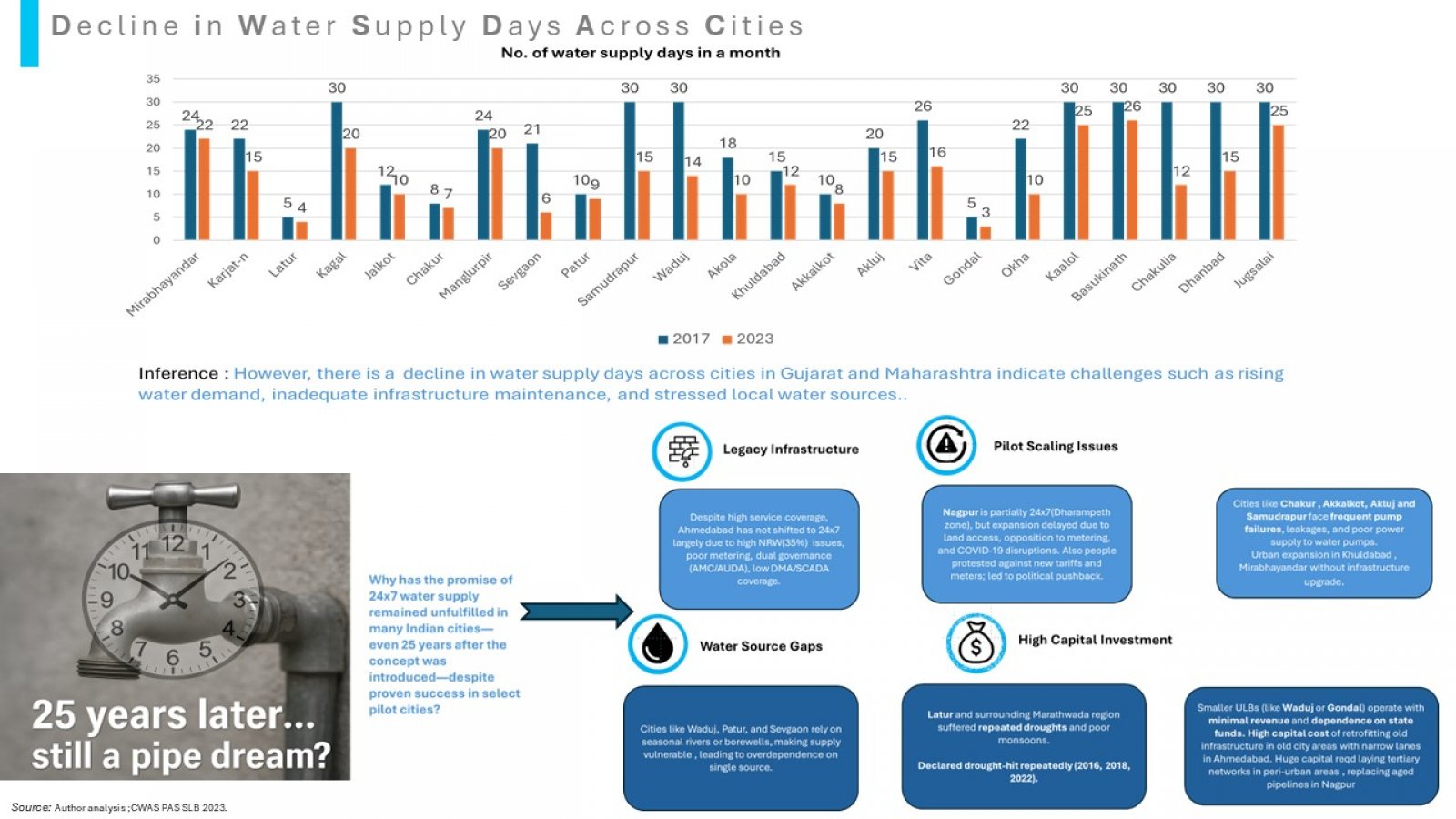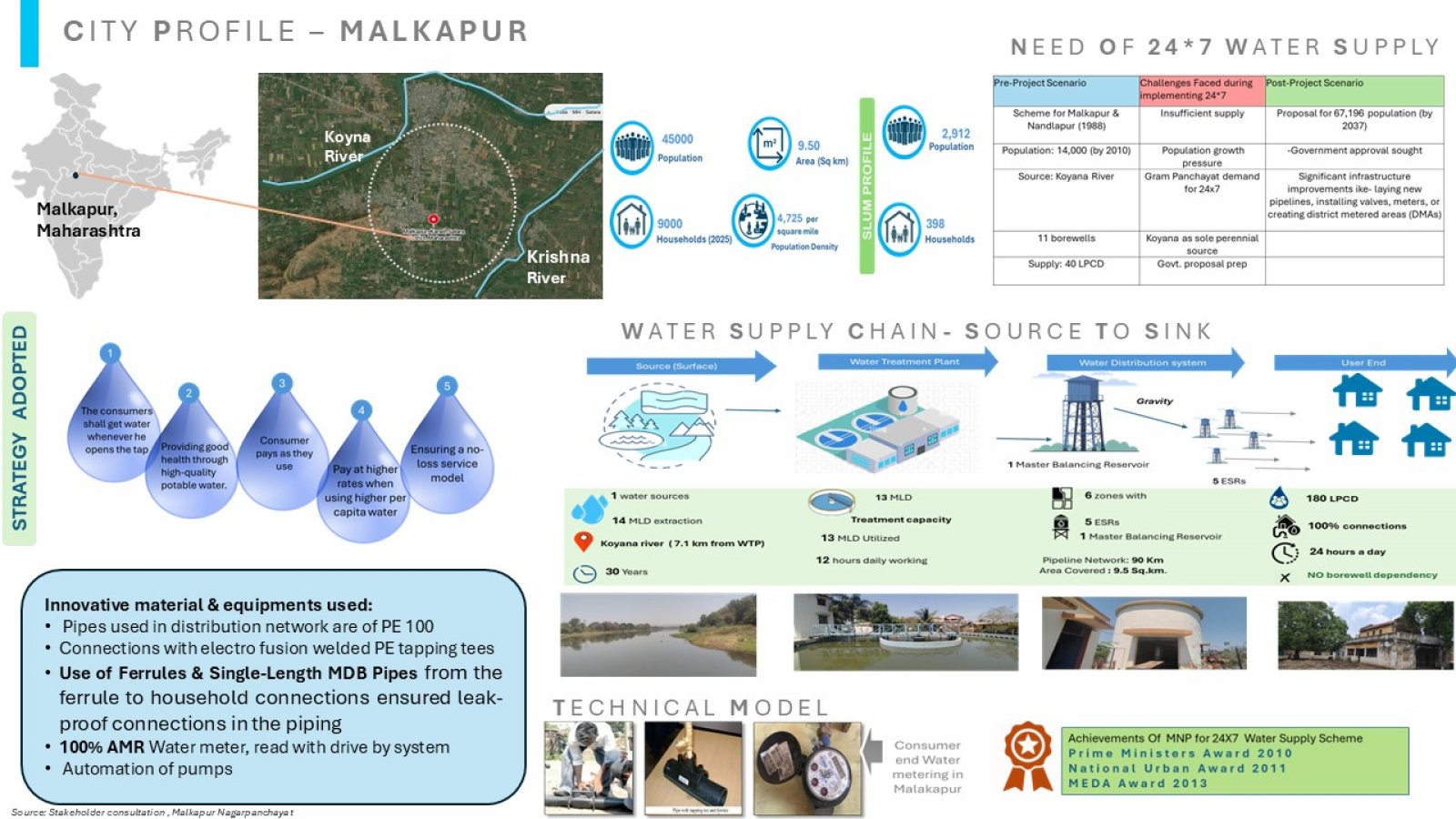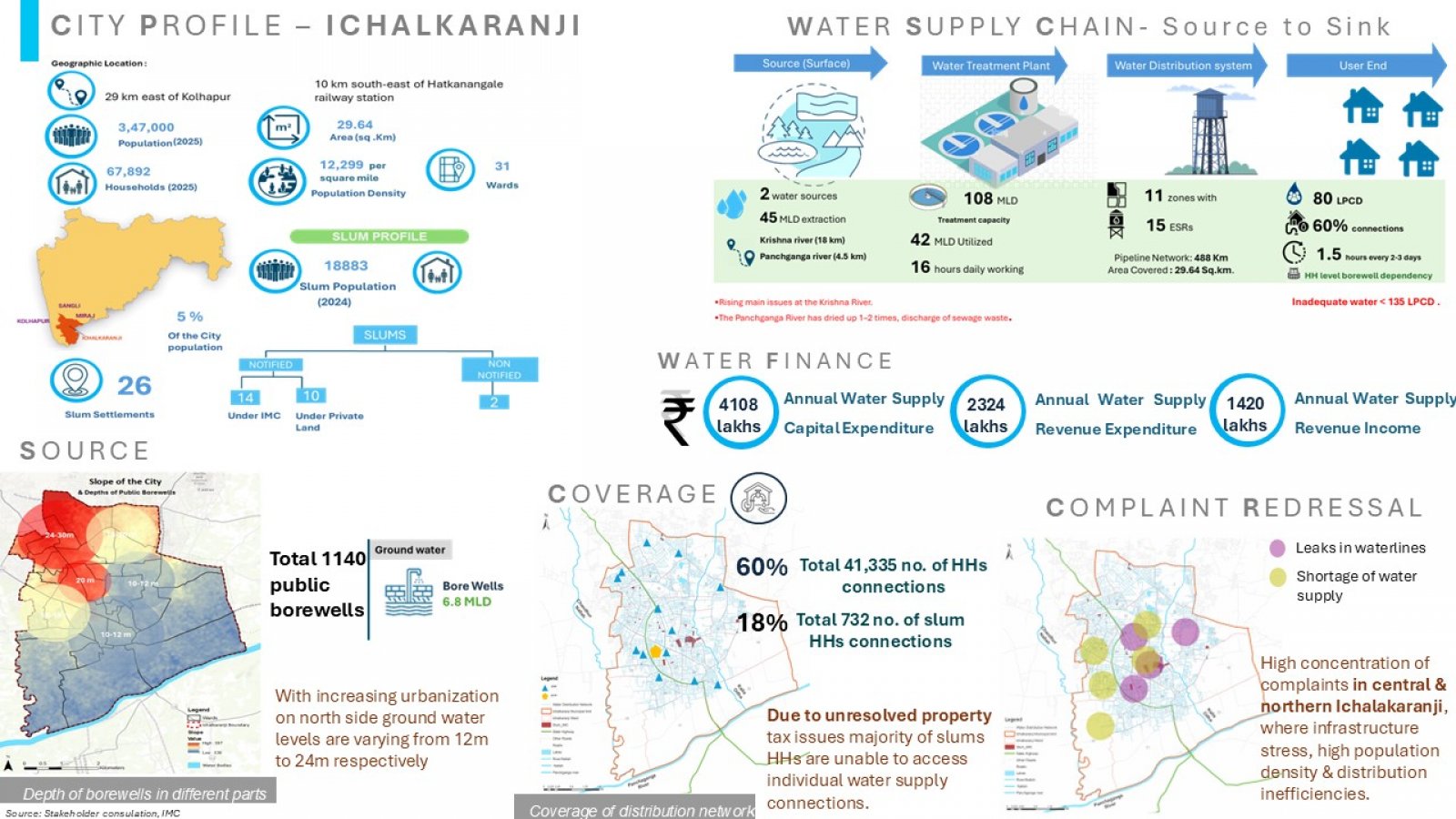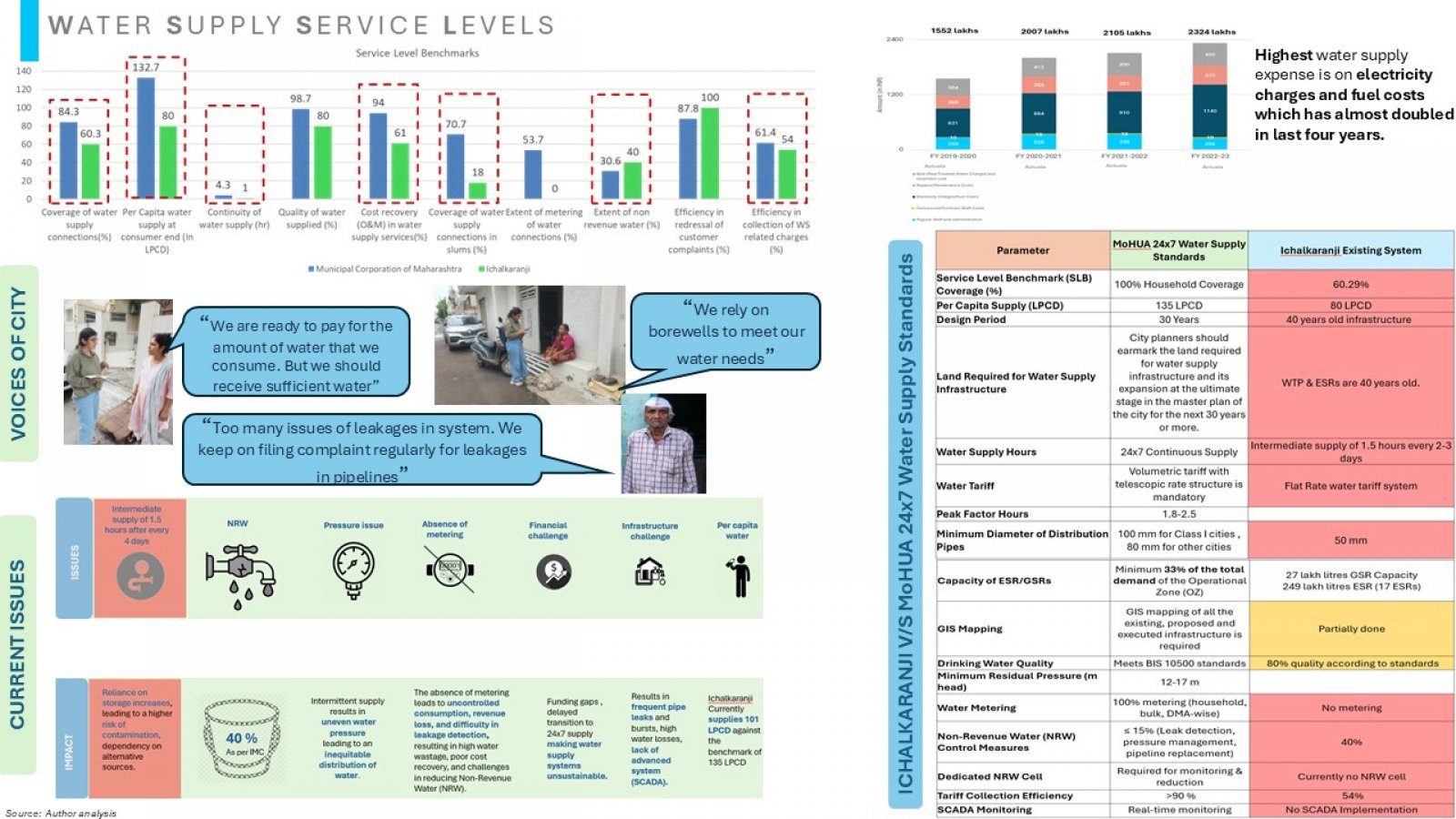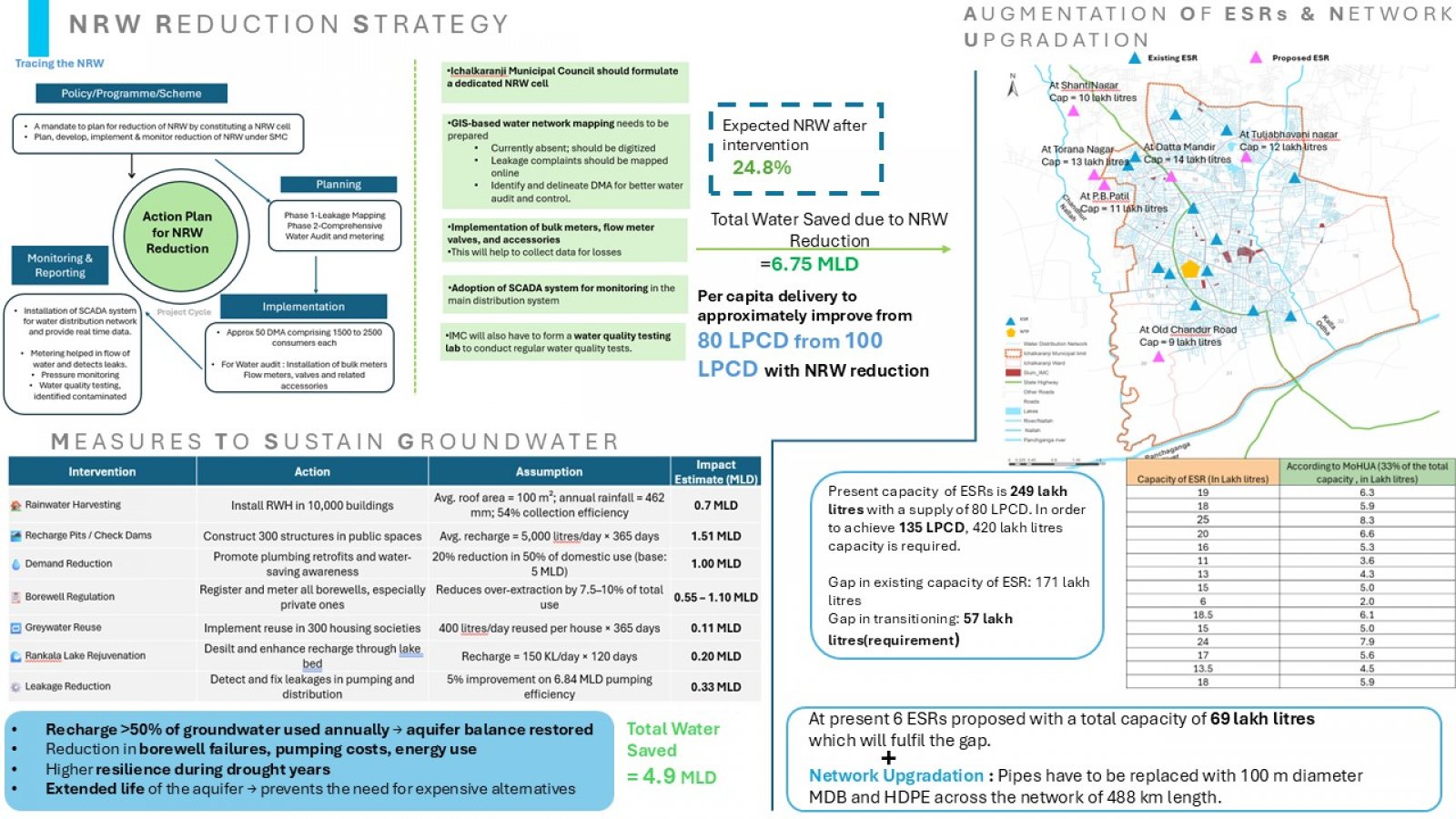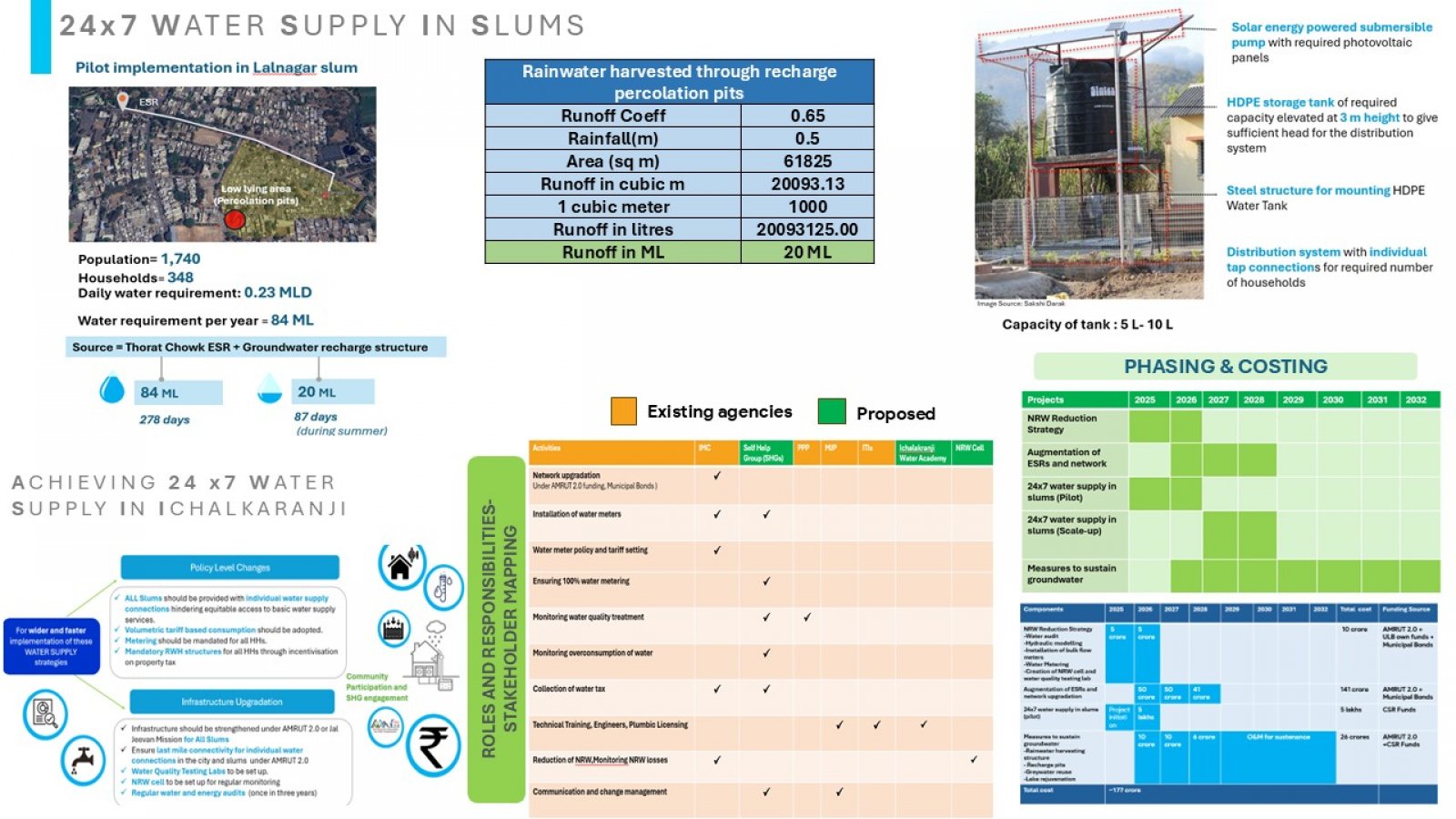Your browser is out-of-date!
For a richer surfing experience on our website, please update your browser. Update my browser now!
For a richer surfing experience on our website, please update your browser. Update my browser now!
In recent years, urban India has witnessed significant strides in improving access to piped water supply, with national efforts and flagship missions like the Atal Mission for Rejuvenation and Urban Transformation (AMRUT) and Jal Jeevan Mission - Urban (JJM-U) accelerating the process. According to the Economic Survey 2025, tap water coverage has now reached 70% of urban households, marking notable progress in expanding the service footprint. However, continuity of supply remains a pressing challenge across most Indian cities, with many areas still reliant on intermittent water supply, typically ranging from a few hours every alternate day to a few times a week. This not only affects the reliability of the service but also impacts health, hygiene, and equity. In response, a handful of cities such as Malkapur, Puri and Hubballi-Dharwad have implemented 24x7 continuous water supply systems, aiming to improve service levels, reduce water losses, and enhance operational efficiencies. The transition toward round-the-clock supply is not just a technical upgrade but a transformative shift in urban water governance, requiring a holistic approach to infrastructure, metering, energy efficiency, community engagement, and institutional capacity building. Further using the learnings, the research aims to develop a strategy for transitioning from intermittent to 24x7 water supply in Maharashtra – Ichalkaranji to improve water supply service levels and address water scarcity and inequity. Currently, Ichalkaranji Municipal Corporation has intermittent water supply system with 80 lpcd water received at user end. Water is supplied in every two-three days and huge non-revenue water losses are reported. The city aspires to build a 24*7 water system in 2026. This study is to assess water supply system in Ichalkaranji and develop a strategy for 24*7 water supply implementation through technical, financial and institutional initiatives.
